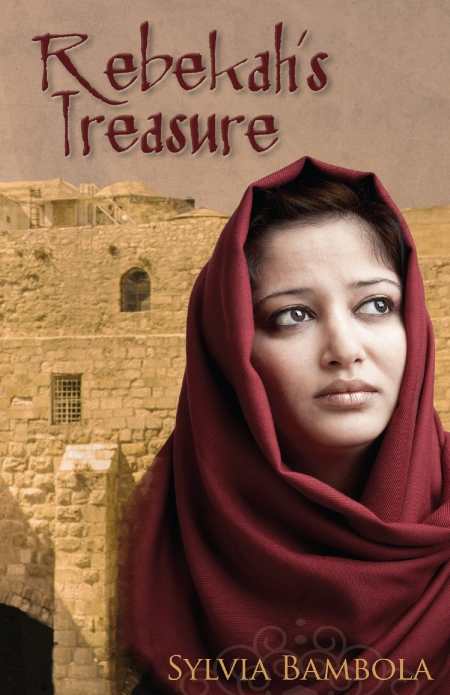Rebekah's Treasure
These pages breathe life into first-century Palestine, and afford dignity to those who fought against Rome’s influence to maintain both faith and family.
Sylvia Bambola’s latest novel is an emotionally charged postbiblical adventure that champions steadfast faith and reliance on family.
Rebekah was just a girl when she shared a Passover meal with a rabbi called Jesus. Now the mother of five, she keeps the cup from that night as a memento and follows the Way, an early version of Christianity. But Roman forces at the walls of Jerusalem have placed her family in peril, and she and her daughter are forced to flee, even as her husband and sons rally at the Temple.
The text trades between Rebekah’s recollections and those of her husband, Ethan, one of the sect of zealots who hope to keep Jerusalem intact. Rebekah proves to be a woman caught between Judaism and Christianity by virtue of the era: she speaks as, and is identified as, a Jew, but the life she lives in Pella, where Zechariah heads the local church, is guided by the teachings of Jesus.
The tension-filled separation of Rebekah from her family propels the story forward, and readers will scarcely want to take a break from Bambola’s suspenseful pace. Ethan and his sons fight nobly in Jerusalem, even as the patriarch begins to question the point of the loss of so many lives; when the three of them are forced to flee to Qumran at their leader’s insistence, readers will be intrigued by the treasure map of a scroll they bring along.
But neither Rebekah nor Ethan prove captive to the relics entrusted to them, though they’re of great value, and greedier eyes follow them wherever they go. From chapter to chapter, their goal remains steady: to work their way back toward each other.
Bambola effectively conveys that Rebekah and Ethan’s virtues are protected by their refusal to invest value in anything finite. Villains—the incorrigible Argos, who’s after the cup of Christ, and Lamech, who wants only the Temple’s gold, among them—are drawn with the opposing side of this brush. Their near-wins make for tense moments within the text, but readers will find that their faith lies with those characters who hold faith themselves.
Bambola’s narrative is the product of careful research. These pages breathe life into first-century Palestine, capturing the horrors of besieged Jerusalem in grave detail. So, too, do they afford dignity to those who fought against Rome’s influence to maintain both faith and family. The book should appeal to those who gravitate to Christian fiction, and it stands to edify readers about the world from which Jesus came, as well as the one that developed in his wake.
A gripping and intelligent tale of life during Jerusalem’s last stand under Rome, Rebekah’s Treasure is a strong contribution to growing bodies of historical Christian fiction.
Reviewed by
Michelle Anne Schingler
Disclosure: This article is not an endorsement, but a review. The publisher of this book provided free copies of the book and paid a small fee to have their book reviewed by a professional reviewer. Foreword Reviews and Clarion Reviews make no guarantee that the publisher will receive a positive review. Foreword Magazine, Inc. is disclosing this in accordance with the Federal Trade Commission’s 16 CFR, Part 255.

